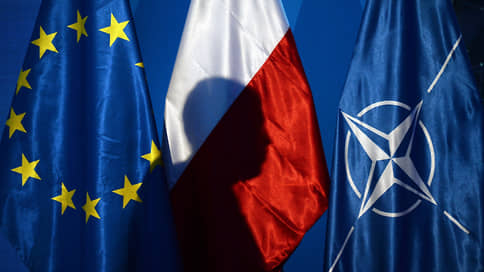The China of the Ming, the Shogun and the « America Great Again » of Trump: how much damage is nostalgia in economics

The Donald is certainly not the first leader to imagine the return to the golden age. But the promises are not realized (almost) never
On Damage of nostalgia in politics There are entire libraries. Less faced is, perhaps, the impact of the same nostalgia oneconomy. It is the theme they deal with, with a intervention on the website of Foreign AffairsHarold James, professor of international history and affairs in Princeton and Marie-Louise James, a doctoranda at the Ludwig Maximilian University of Munich with several studies on the nostalgia.
What is the polemical target of the two, it is already clear from the first lines: «Today society no longer considers nostalgia a disease. It is considered rather a vague feeling e apparently benign linked to an idealized past. But the profound economic disturbances of the last few months they could push analysts to reconsider the idea that nostalgia is a serious condition, even lethal. American policies based on the premise of restoring the size of the past – The mythical and opaque « again » of Make America Great Again – They worsened life both inside and outside the United States ».
The two, however, have easy game in remembering that The Donald is certainly not the first leader to promise return to a more or less mythical age of economic gold. «From the fifteenth to the 19th century, the China He sealed his empire for fear of external influences. The Japan he made the same for most of the eighteenth, eighteenth and nineteenth centuries, during the period of shogunate. And several European states have embraced the policy of nostalgia. Although these governments were motivated by different economic contexts and global scenarios, they were united by the belief that isolating the nation to preserve the traditions would bring Economic and even spiritual well -being»(On these themes you can also read the beautiful book of Franco-Libyan Amin Maalouf The labyrinth of the lostpublished in Italy by La Nave di Teseo).
Things did not go like the prophets of the return to the golden age had promised. Quite the opposite: «Each of these cases ended badly; The story has shown the danger of exploiting nostalgic feelings. The countries that have embraced nostalgic policies have abandoned them or have fallen into ruin. There Chinafor example, was so weakened by his cuts with the outside that in the nineteenth century he became increasingly subject to diktat of the Western Imperialists. The isolation of the Japan made it progressively more vulnerable to incursions of increasingly powerful western countries. The desire of theEuropeafter the First World War, of an agricultural past helped to bring to fascism».
On this last point, the two academics add that « after the Second World War, the Europeans began to understand how much nostalgia had been decisive in the rise of fascism and in the destruction of democracy. They then embarked in an alternative: encourage the exodus from the countryside, while paying substantial subsidies to the left farmers. In a sense, this last move was a sort of courteous nostalgia, such as Herriot’s. But ultimately it was more an attempt to hold the losers of globalization on their sidemore and more weak, while continuing to progress the economy. In the 1980s, the common agricultural policy (as he was called) represented over 70% of the European Community budget. Today, however, it absorbs just over 25% of the EU budget. The economies of the continent managed to recover quickly from the devastation of the Great Depression and the Second World War, while people accepted that the peasant life was something now firmly in pastrather than something that could be resurrected in full ».
Lesson on the « rogue nostalgia » learned, then? Not so much. «Nostalgia has never completely abandoned the general picture, and now it is returned overwhelmingly in mainstream politics. Is, for example, by feeding the European populism. This time, however, the nostalgic sentiment concerns the loss of the manufacturing sector. THE’Italywhose sectors of household appliances, fabrics and clothing were the most vulnerable to the Chinese shock, it collapsed first, giving life to the First populist government of Western post -war Europe, with Silvio Berlusconi Prime Minister in 1994. Since then, this nostalgic infection has spread. Now, even the European industrial engine, Germany is faltering, while the alternative populist movement for Germany grows in popularityparticularly in the eastern country’s eastern regions. But No country seems more afflicted by the nostalgia of the United States. The anger for the globalization and growing diversity of the country is, after all, part of what has pushed Trump to the White House. And above all since he won his second term, Trump has committed himself to keeping his atavistic promises. The president explicitly passed off his drastic duties as repairers: on April 2, he told the Americans, he would have scored « the day when the American industry would be reborn » and « the day when the fate of America would have been regained ». Also his secretary to trade, Howard Lutnickdescribed the duties as an attempt by Washington to regain possession of his glorious past ».
A nostalgia not only for values, but even for the work of the pastto what – with the usual Sicumera – said, on April 2, Donald Trump, in the « liberation day » in the name of the duties: « We are bringing back to life an industry that had been abandoned. We will put the miners back to work. You can give them a penthouse on Fifth Avenue and a different job, but they would not be happy. They want to extract coal; That’s what they love to do ».
The trouble is that, with the overwhelming advance of theartificial intelligencewhich will create new « left behind » (no longer only in agriculture and industry, but also in intellectual professions), the ground to make nostalgia rooted could become even more fertile: «It is unlikely that i duties They can restore the lost jobs, especially with the looming of the automation revolution. In addition, artificial intelligence now threatens employees in a similar way to robots in factories during the first wave of industrialization between the 19th and 20th century. Political nostalgia, however, can make the negative consequences that follow revancist economic policies». The US Secretary at the Treasury Scott Bessent He has a nice saying that « any suffering induced by duties is actually a »detoxification period« , And why Trump can talk about duties as a »operation« And of a »medicine« . That medicine is quackery. The economy of nostalgia never works, and its inevitable failure only generates a cultural nostalgia that could even be more dangerous than job cuts».
Also in this case, unfortunately, history is prodigious of negative examples: «When Japan, for example, remained further and further back compared to western Europe in the eighteenth and nineteenth centuries, insisted more and more on his unique cultural identitywhich contributed to dragging him on the way of theimperialism. If the United States did not recover their jobs – and indeed they should lose even more because of the failures caused by the duties – also Washington could double the statements on the superiority of America. The government could unleash other cultural wars Rather than accepting any type of retreat. After all, someone has to be held responsible for the failure of economic policies that so many Americans support. Nostalgia, therefore, becomes both the cause of the problems and their coverage ».
The fact that it is understandable, does not make it more acceptable. Neither less dangerous: « It is not surprising that people are worried about today’s technology, which is radically transforming the world. The twin forces of globalization and technology are upsetting jobs, communities, families and social relationships. The idea of returning to a retouched and idealized version of the world is therefore very tempting. But history teaches that Politicians cannot afford to let themselves be hit by the nostalgia disease. As an individual feeling, it can be comforting. But as a political prescription, the debate poles and disintegrates the political body. The recovery requires painfully long times, e Returning to an imaginary lost homeland is not an option». Too bad that the most powerful man in the world is convinced of the contrary.


/s3/static.nrc.nl/images/gn4/stripped/data133264194-e515bb.jpg)


